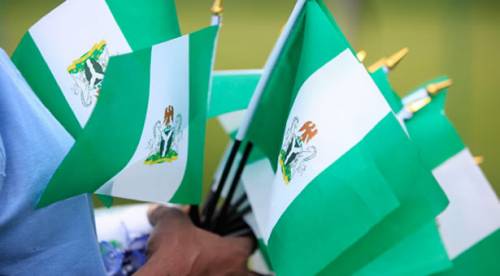It is often said, and it is certainly true, that a country with the resources Nigeria has, has no business being poor.
In the 1970s, when Nigeria was coming into oil money, the Republic of Korea was recovering from the Korean War and at that time had about the same GDP as Nigeria.
- IBB, Abdulsalami Back North Central People’s Forum
- Strange Disease: FG Urges Investigation Into ‘50 Deaths’ In Kogi
What the Koreans did was to rebuild their country. What the Nigerians did was to wonder how to squander their money. During a visit to the Asian country, I was impressed by the level of development and growth. Considering that the country has no resources, unlike Nigeria, it is remarkable what they have achieved.
When I asked the then Korean Ambassador to Nigeria about how they had transformed their country from a war-torn, impoverished nation into a developed country, this ambassador, who remembered when his country was in ruins, when they struggled for what to eat and shed a tear or two over these memories, told me they turned to the only thing they had—their people.
The irony in this statement was that if people translate to wealth, then Korea (with 51 million people) would remain a relatively poor country compared to Nigeria with 200 million. (The US Census Bureau projects that there will be an estimated 402 million Nigerians by 2050).
But while Koreans and Korea have grown richer, Nigeria has grown into a rich country of indigent people (with a per capita income of $2,229.9 as at 2019, while Korea’s is at $31,762.0 for the same year, according to World Bank data.)
Despite the penury of Nigerians, the cost of being Nigerian, the simple right to exist, to pursue one’s legitimate affairs in this country is on the rise. We have all sorts of levies and taxes to pay, just to be alive, and even that, not in the most dignified fashion.
Nigerians have been talking on social media about what it takes to defend a master’s dissertation in a federal university, which includes, in some cases, some bogus fees, hotel accommodation for members of the panel, foods and drinks to feed a small army, all provided by the student. Those who cannot afford this, and are not of the lecturers’ preferred sexual gender, or are unwilling to submit themselves to the institutionalised rape culture in our universities are left to their own devices.
Daily, the Nigerian is subjected to all sorts of impositions and taxations for which the collecting authorities are varied. They range from government to government thugs, police at the checkpoints, bandits and kidnappers.
A Facebook friend, Dr Safiya Tanko, recently recounted her experience in the Southeast, where the car she and her colleagues were travelling in was detained by some card-brandishing thugs in Asaba who demanded a levy of N60,000 for documentation related to their vehicle for the local government. The travellers could pay that amount on the spot or pay N85,000 at the ‘task force’ office.
A fee of N40,000 was negotiated; receipts were issued, only for these receipts to be pronounced incomplete by another set of government thugs, this time in Imo State, who demanded a separate payment of N10,000.
Governments in various states, including the FCT, have legitimised thuggery by employing hooligans as tax collectors. I wrote, not too long ago, of some ID-card-wielding “task force” agents who jump into people’s cars to demand fees for “wrong parking”, where no “No Parking” signs exist, in places that road markings indicate are designed for cars to park.
Those at their places of business are not safe from levy-hungry thugs. An Abuja restaurateur recently published a video lamenting the multiple taxes she is forced to pay to stay open. Even if she later admitted the mistake was from her part, the fact remains that many small business owners across the country battle a locust of tax collectors who descend on them with various levies claims and threats of shutting down the business.
To successfully run a business in this country, one has to pay for electricity, provide and service a generator unit. This is paying twice for electricity. The same goes for water and security, where despite taxes one pays to the government, one who can afford it, has to pay for private security to at least sleep at night.
Despite all these payments to the government and government-licenced brigands, heavier tolls are collected by bandits and career kidnappers, who have taken advantage of the weak security structure in the country to institute a regime of taxation on Nigerians.
In the wild-wild northwest, bandits impose levies on villagers for a licence to be left alive. Failure to pay on a given date would cause the obliteration of that village, the massacre of its residents and the rape and pillaging of its women.
Bandits have taken to imposing levies on villagers in Zamfara before they can harvest their farms. When bandits imposed a million naira levy on Akata village in Katsina, villagers taxed themselves N1,500 each so they could pay and avoid being killed. This is true also in countless other villages.
Even those living in cities have often found themselves in this quagmire when bandits, no longer content with blocking expressways and kidnapping dozens of travellers, have now taken to raiding homes and carrying off residents and demanding a ransom for a licence their freedom.
Considering the recent raids in Katsina, where women were abducted for ransom, raped and beaten before their parents sold their farmlands to pay the ransom, and the abduction of nine ABU students along the Kaduna-Abuja highway, for whom kidnappers are now demanding N270 million, it is clear the price of being Nigerian and living in this country is rising by the day.
For all these levies paid to the government, government thugs, pothole fixers, private security, immigration officers at airports who demand “something for the boys” while holding firmly to one’s passport, and all the bandits’ levy, there is no corresponding improvement in the life of the average Nigerian, which is what taxes are meant for.
In most cases, at the end of these multiple taxations by legitimate and illegitimate authorities, there are absolutely zero guarantees of a decent, life, if you are lucky to be left alive. Because sometimes, being Nigerian also means paying for your life with your life.

 Join Daily Trust WhatsApp Community For Quick Access To News and Happenings Around You.
Join Daily Trust WhatsApp Community For Quick Access To News and Happenings Around You.


